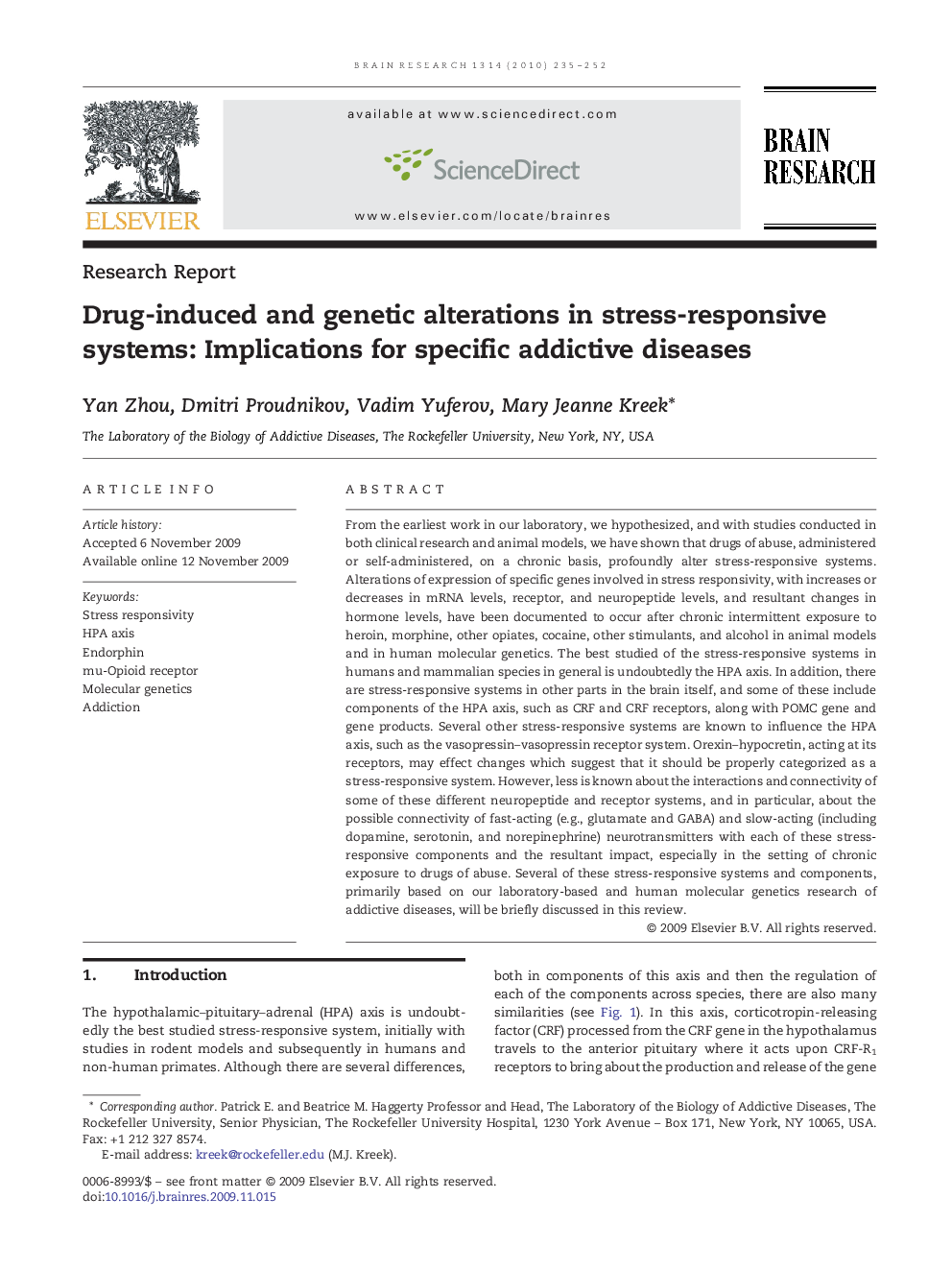| کد مقاله | کد نشریه | سال انتشار | مقاله انگلیسی | نسخه تمام متن |
|---|---|---|---|---|
| 4327389 | 1614125 | 2010 | 18 صفحه PDF | دانلود رایگان |

From the earliest work in our laboratory, we hypothesized, and with studies conducted in both clinical research and animal models, we have shown that drugs of abuse, administered or self-administered, on a chronic basis, profoundly alter stress-responsive systems. Alterations of expression of specific genes involved in stress responsivity, with increases or decreases in mRNA levels, receptor, and neuropeptide levels, and resultant changes in hormone levels, have been documented to occur after chronic intermittent exposure to heroin, morphine, other opiates, cocaine, other stimulants, and alcohol in animal models and in human molecular genetics. The best studied of the stress-responsive systems in humans and mammalian species in general is undoubtedly the HPA axis. In addition, there are stress-responsive systems in other parts in the brain itself, and some of these include components of the HPA axis, such as CRF and CRF receptors, along with POMC gene and gene products. Several other stress-responsive systems are known to influence the HPA axis, such as the vasopressin–vasopressin receptor system. Orexin–hypocretin, acting at its receptors, may effect changes which suggest that it should be properly categorized as a stress-responsive system. However, less is known about the interactions and connectivity of some of these different neuropeptide and receptor systems, and in particular, about the possible connectivity of fast-acting (e.g., glutamate and GABA) and slow-acting (including dopamine, serotonin, and norepinephrine) neurotransmitters with each of these stress-responsive components and the resultant impact, especially in the setting of chronic exposure to drugs of abuse. Several of these stress-responsive systems and components, primarily based on our laboratory-based and human molecular genetics research of addictive diseases, will be briefly discussed in this review.
Journal: Brain Research - Volume 1314, 16 February 2010, Pages 235–252